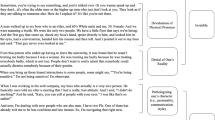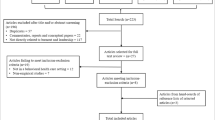Abstract
Contractual grievance procedures have long been utilized in union-management relationships to resolve workplace disputes. Little research attention, however, has focused on determining unionized workers' perceptions of and attitudes about such procedures. This study develops an instrument designed to measure worker attitudes toward the grievance procedure (ATGP). The survey items and conceptual framework are based on prior research in the areas of administrative and procedural justice. Employing a national sample (N=1080) from a single union, the results support a multidimensional attitudinal measure. Four key dimensions of workers' assessment of the grievance procedure were found: (i) Fairness, (ii) Effectiveness, (iii) Representation, and (iv) Importance. The structure of the measure was stable across identified sub-groups in the sample. Some differences in the attitudinal assessment on the four dimensions emerged depending upon union office holding and the grievance-filing experience of the respondents. Last, potential future applications of the instrument are discussed.
Similar content being viewed by others
References
Anderson, J. (1979). The grievance procedure in Canadian municipal labor relations. Paper presented at the annual meeting of the Academy of Management, Atlanta, GA.
Barrett-Howard, E., and Tyler, T. R. (1986). Procedural justice as a criterion in allocation decisions.J. Pers. Soc. Psychol. 50: 296–304.
Brett, J. M. (1986). Commentary on procedural justice papers. In Lewicki, R. J., Sheppard, B. H., and Bazerman, M. H. (eds.),Research on Negotiations in Organizations, Vol. 1, JAI, Greenwich, CT, pp. 81–90.
Briggs, S. (1984).The Municipal Grievance Procedure, Institute of Labor Relations, UCLA, Los Angeles.
Buss, W. G., Kuriloff, P. J., and Pavlak, T. J. (1981).Disciplinary Due Process: An Empirical Feasibility Study of Procedural Due Process, School Discipline, and Educational Environment (Project No. 7-015). National Center for Administrative Justice, Washington, DC.
Clark, P. F. (1986).Union member attitudes toward the grievance procedure: Measurement, correlates and relationship to union commitment. Ph.D. Dissertation, University of Pittsburgh.
Chamberlain, N. (1948).The Union Challenge to Management Control, Harper and Brothers, New York.
Cohen, R. L. (1985). Procedural justice and participation.Hum. Rel. 38: 643–663.
Estey, M. S. (1981).The Unions: Structure, Development, and Management, 3rd ed., Harcourt Brace Jovanovich, New York.
Folger, R. (1977). Distributive and procedural justice: Combined impact on “voice” and improvement on experienced inequity.J. Pers. Soc. Psychol. 35: 108–119.
Folger, R., and Greenberg, J. (1985). Procedural justice: An interpretive analysis of personnel systems. In Rowland, K., and Ferris, G. (eds.),Research in Personnel and Human Resources Management, Vol. 3, JAI, Greenwich, CT, pp. 141–183.
Foulkes, F. K. (1980).Personnel Policies in Large Nonunion Companies, Prentice-Hall, Englewood Cliffs, NJ.
Freeman, R. B., and Medoff, J. L. (1984).What Do Unions Do?, Basic Books, New York.
Friendly, H. J. (1975). Some kind of hearing.U. Penn. Law Rev. 123: 1267–1273.
Golden, C. S. and Ruttenberg, H. J. (1942). The Dynamics of Industrial Democracy, Harper and Brothers, New York.
Gordon, M. E., and Bowlby, R. L. (1988). Propositions about grievance settlements: Finally, consultation with grievants.Personnel Psychol. 41: 107–123.
Gordon, M. E., and Fryxell, G. E. (1989). Voluntariness of association as a moderator of the importance of procedural and distributive justice.J. Appl. Soc. Psychol. 19: 993–1009.
Gordon, M. E., and Miller, S. J. (1984). Grievances: A review of research and practice.Personnel Psychol. 37: 117–146.
Gordon, M. E., Philpot, J. W., Burt, R. E., Thompson, C. A., Spiller, W. E. (1980). Commitment to the union: Development of a measure and examination of its correlates.J. Appl. Psychol. 65: 479–499.
Greenberg, J. (1987). A taxonomy of organizational justice theories.Acad. Manage. Rev. 12: 9–22.
Greenberg, J. (1990). Organizational justice: Yesterday, today, and tomorrow.J. Manage. 16: 399–432.
Greenberg, J., and Tyler T. R. (1987). Why procedural justice in organizations.Soc. Justice Res. 1: 127–142.
Heckscher, C. (1986). QWL, due process, and employee voice. Paper presented at the Annual Meeting of the Academy of Management, Chicago.
Hirschman, A. O. (1970).Exit, Voice and Loyalty: Responses to Decline in Firms, Organizations and States, Harvard University Press, Cambridge, MA.
Ichniowski, C. (1986). The effects of grievance activity on productivity.Ind. Labor Rel. Rev. 40: 75–89.
James, L. R., Mulaik, S. A., and Brett, J. M. (1982).Causal Analysis, Sage, Beverly Hills, CA.
Joreskog, K. G., and Sorbom, D. (1981).LISREL Analysis of Linear Structural Relationships by the Method of Maximum Likelihood, National Educational Resources, Chicago, IL.
Joreskog, K. G., and Sorbom, D. (1984).LISREL VI User's Guide, Scientific Software, Mooresville, IN.
Katz, H. C., Kochan, T. A., and Weber, M. (1985). Assessing the effects of industrial relations and quality of working life efforts on organizational effectiveness.Acad. Manage. J. 28: 509–527.
Kanter, R. M. (1978). Work in a new America.Daedalus 107: 47–78.
Kochan, T. A., and Borocci, T. A. (1985).Human Resource Management and Industrial Relations: Text, Readings and Cases, Little, Brown and Company, Boston, MA.
Kochan, T. A., Katz, H. C., and McKersie, R. B. (1986).The Transformation of American Industrial Relations, Basic Books, New York.
Ladd, R. T., Gordon, M. E., Beauvais, L. L., and Morgan, R. L. (1982). Union commitment: Replication and extension.J. Appl. Psychol. 67: 640–644.
Landy, F. J., and Farr, J. L. (1983).The Measurement of Work Performance: Methods, Theory, and Applications, Academic Press, New York.
Lane, R. E. (1988). Procedural goods in a democracy: How one is treated versus what one gets.Soc. Justice Res. 2: 177–192.
Lewin, D. (1983). Theoretical perspectives on the grievance procedure. In Reid, J. (ed.),Research in Labor Economics, Vol. 6, JAI, Greenwich, CT, pp. 127–147.
Lewin, D., and Peterson, R. B. (1988).The Modern Grievance Procedure in the United States, Quorum Books, New York.
Lind, E. A., and Tyler, T. R. (1988).The Social Psychology of Procedural Justice, Plenum Press, New York.
Martin, J. E., Magenau, J. M., and Peterson, M. M. (1982). Variables differentiating patterns of commitment among union stewards. Paper presented at the annual meeting of the Academy of Management, New York.
Mashaw, J. L. (1974). The management side of due process: Some theoretical and litigation notes on the assurance of accuracy, fairness and timeliness in the adjudication of social welfare claims.Cornell Law Rev. 59: 772–824.
Mashaw, J. L. (1983).Bureaucratic Justice: Managing Social Security Disability Claims, Yale University Press, New Haven, CT.
McCabe, D. M. (1989). Corporate nonunion grievance arbitration systems: A procedural analysis.Labor Law J. 40: 432–437.
Osigweh, Y., and Chimizie, A. B. (1987). Communication, responsibilities, and pro-rights revolution in the industrial workplace. In Osigweh, Y. (ed.),Communicating Employee Responsibilities and Rights: A Modern Management Mandate, Quorum Books, New York, pp. 3–40.
Peach, D. (1972). Union and management decision making in the grievance procedure.Rel. Ind. 27: 757–767.
Rawls, J. (1971).Theory of Justice, Harvard University Press, Cambridge, MA.
Repas, B. (1984).Contract Administration, Bureau of National Affairs, Washington, DC.
Rowe, M. P., and Baker, M. (1984). Are you hearing enough employee concerns?Harvard Bus. Rev. 62: 127–135.
Schiemann, W. A. (1983).Managing Human Resources: 1983 and Beyond, Opinion Research Corporation, Prentice-Hall, Englewood Cliffs, NJ.
Sheppard, B. W., and Lewicki, R. J. (1987). Toward general principals of managerial fairness.Soc. Justice Res. 1: 161–176.
Slichter, S. H., Healy, J. J., and Livernash, R. E. (1960).The Impact of Collective Bargaining on Management, The Brookings Institution, Washington, DC.
Thibaut, J. W., and Walker, L. (1975).Procedural Justice: A Psychological Analysis, Erlbaum, Hillsdale, NJ.
Tierney, J. T. (1988).The U.S. Postal Service: Status and Prospects of a Public Enterprise, Auburn House, Dover, MA.
Tyler, T. R. (1986). When does procedural justice matter in organizational settings? In Lewicki, R., Sheppard, B., and Bazerman, M. (eds.),Research on Negotiation in Organizations, Vol. 1, JAI, Greenwich, CT, pp. 7–23.
Tyler, T. R. Rasinski, K. A., and Spodick, N. (1985). Influence of voice on satisfaction with leaders: Exploring the meaning of process control.J. Pers. Soc. Psychol. 48: 72–81.
Veglahn, P. A. (1977). Making the grievance procedure work.Personnel J. 5: 122–123, 150.
Walker, E., Lind, E. A., and Thibaut, J. (1979). The relation between procedural justice and distributive justice.Virginia Law Rev. 65: 1401–1420.
Author information
Authors and Affiliations
Rights and permissions
About this article
Cite this article
Pavlak, T.J., Clark, P.F. & Gallagher, D.G. Measuring attitudes toward grievance systems: A procedural justice perspective applied to the workplace. Soc Just Res 5, 173–194 (1992). https://doi.org/10.1007/BF01048706
Issue Date:
DOI: https://doi.org/10.1007/BF01048706




